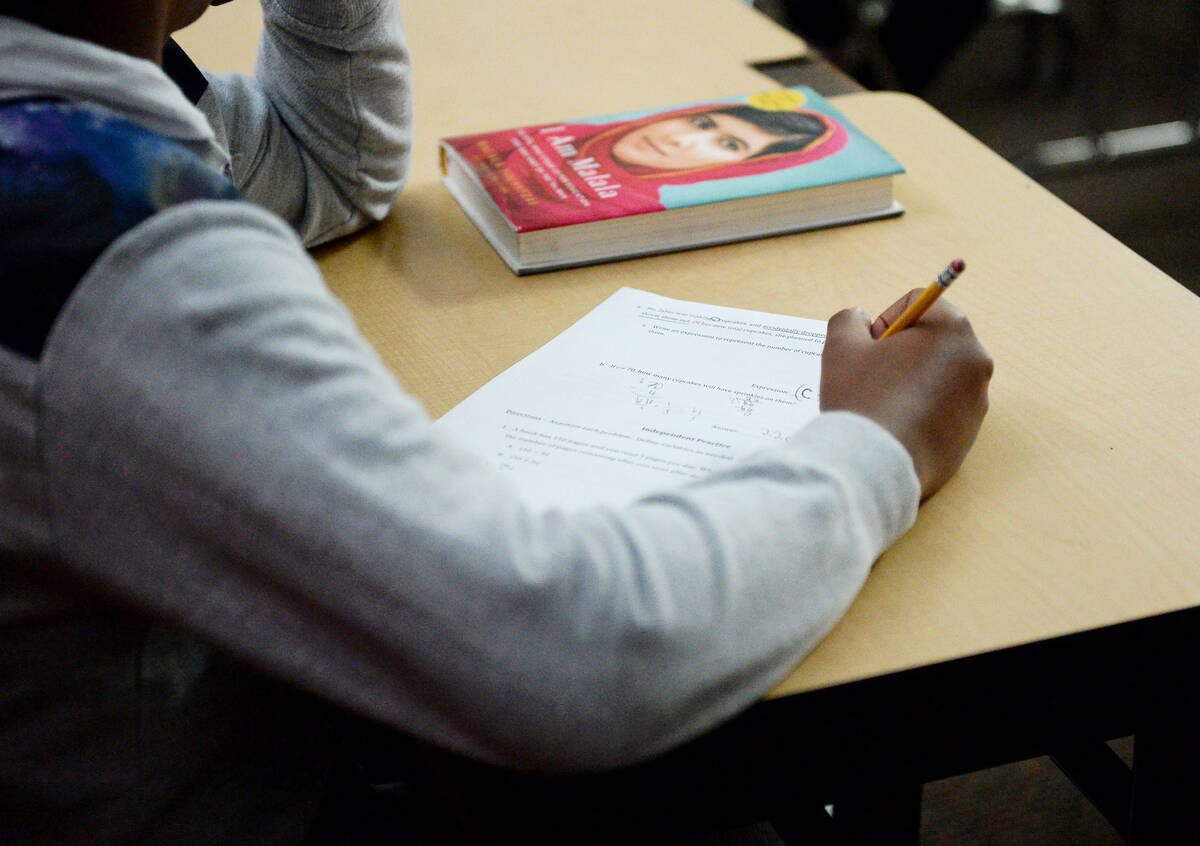NEVADA VIEWS: Giving Nevada parents options
Nevada families are facing two very different paths for the future of their children’s education, but their legislators are the ones making the choice. Will they pick correctly?
With fewer than two weeks remaining until the end of the legislative session, Nevada lawmakers are faced with two competing education proposals. First is Senate Bill 460, sponsored by Senate Majority Leader Nicole Cannizzaro, D-Las Vegas. The other is Republican Gov. Joe Lombardo’s long-awaited omnibus Assembly Bill 584. While both acknowledge the need for a change in the way the Silver State educates students, each has a different vision for execution.
Year after year, Nevada ranks at the bottom of national education outcomes. Fewer than 20 percent of high school students in Clark County are proficient in math and only 46.6 percent are proficient in English. More than a quarter of the state’s pupils are categorized as chronically absent and only 81 percent graduate high school. Sadly, Nevada public schools rank alongside their students — only 19 percent of public schools have a 4- or 5-star rating. And while nearly half a million students are stuck in a failing system, just 1,827 receive an Opportunity Scholarship that allows children from low-income households to attend alternative schools of their choice. In other words, better options remain elusive for most families.
So what is the Legislature doing about it?
Ms. Cannizzaro’s SB460 envisions the solution to the poor school performance as increased investment in transparency and accountability. Her bill proposes the formation of the School District Oversight Board, requires submissions of annual reports of accountability and creates a Commission on Recruitment and Retention of teachers. On the other hand, the bill significantly challenges the future of charter schools. It requires that all educational personnel at a charter school hold a license or an endorsement, rather than 80 percent, which is the current standard. SB460 would also require applicants who want to open a charter school to prove beforehand that their school will use the public funds “more efficiently and effectively” than the local public school district. Lastly, the bill would impose the same district-run school testing standards on Opportunity Scholarship recipients.
These approaches are largely not new. In the face of failing public schools, the Legislature has for decades created new oversight boards and blue-ribbon commissions and poured millions of dollars into dysfunctional programs. The state’s current star-rating system is an example of that. Yet, the objective outcomes at district-run schools have not improved —which is why Nevada families have rapidly migrated toward charter schools, making it the second largest “school district” in the state.
A big advantage of charters is they don’t have to operate under the same bureaucratic rules as school districts. For instance, they’re able to hire subject-matter experts as educators even if those experts don’t always hold a teaching license. Similarly, one of the reasons people like private schools is that they don’t need to follow the public school curricula or spend as much time taking tests, freeing them to explore more advanced or specialized subjects. Turning private alternatives into extensions of local school districts does not make the districts better.
On the other hand, Gov. Lombardo’s bill is perhaps the last chance to significantly enhance options available to families before the legislative session concludes. First and foremost, AB584 places power in the hands of parents. Parents of students attending chronically underperforming schools would be eligible to receive support from a new Nevada Integrity in Academic Funding program to spend on supplemental measures or tuition at alternative private options. The bill would also allow students to attend a different district school and would pay for transportation options to make charter schools more accessible to families who want them.
Most importantly, it focuses on improving failing district-run schools but instead of punitive oversight it allows the conversion into charter or innovation schools. In doing so AB584 truly opens the school choice floor for many instead of limiting what we have for very few.
With the legislative clock ticking, families and legislators need to realize that school choice is not the cause of the Great Nevada Educational Crisis, rather it is an essential part of its solution. The debate is not just about two bills. It is about who designs educational choices — bureaucrats or parents, and your legislator is picking.
Anahit Baghshetsyan is a policy analyst at Nevada Policy and Geoffrey Lawrence is the organization’s research director.

















